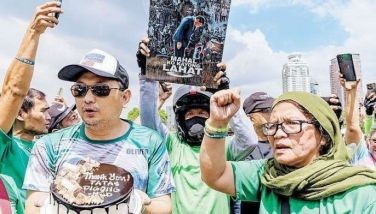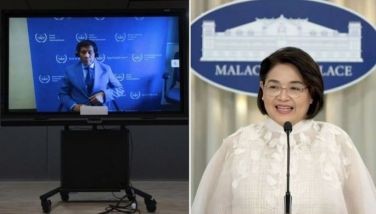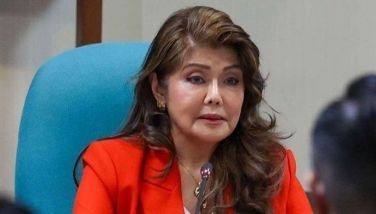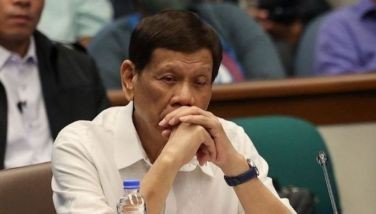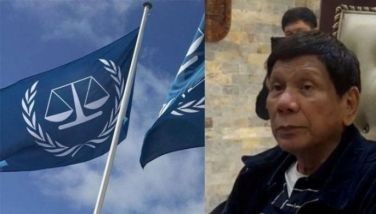NBI probes 20 vloggers for disinfo campaigns; CHR warns of overreach
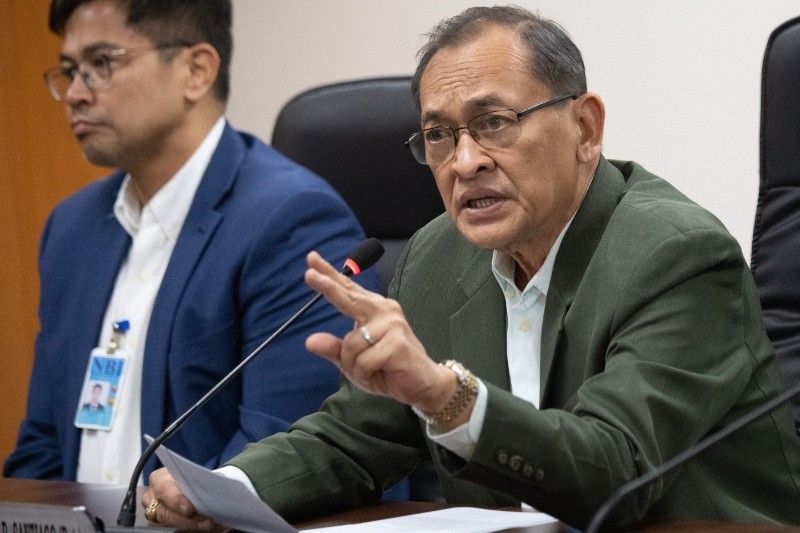
MANILA, Philippines — The National Bureau of Investigation (NBI) is probing 20 individuals accused of spreading false information online, potentially as part of an organized campaign.
NBI Director Jaime Santiago said that the agency has compiled a list of vloggers and their alleged financial backers who are disseminating disinformation targeting public officials. This arose, he said, from a meeting with Department of Information and Communications Technology and the National Telecommunications Commission last week.
“We talked about how we can once and for all stop these fake news spreaders, bloggers who give fake news, and those creators who just create content even if what they're doing isn't right,” Santiago said in an ambush interview on Monday, March 24.
Santiago noted patterns in false narratives being spread, suggesting a coordinated effort.
“Why is it increasing? Why do they seem to have a common theme? They're taking advantage of the turmoil in our political atmosphere,” he said.
Santiago warned that such disinformation campaigns could destabilize the country, stating, “Hindi dapat mangyari. Magugulo ang ating bayan, malilito ang ating mga mamamayan.” (This shouldn't happen. Our country will become chaotic, and our citizens will be confused.)
The investigation aims to identify not only those spreading false information but also their financial supporters, the NBI chief said.
Cybercrime law to be used. Justice Secretary Jesus Crispin Remulla, meanwhile, said individuals involved may face charges under the Anti-Cybercrime Prevention Act or Republic Act 10175.
“We can get a form of cybercrime against them in the process and that is very, very different kind of law,” Remulla said.
Prior arrest. On March 22, authorities arrested a vlogger for disseminating a fabricated quote attributed to President Ferdinand Marcos Jr. on social media. The vlogger reportedly misrepresented a News5 report about Marcos' remarks during a campaign rally.
Wave of disinformation. Following the arrest of former President Rodrigo Duterte on March 11, social media platforms saw a surge in false narratives supporting him. One narrative falsely claimed Duterte was kidnapped, which was echoed by at least 200 Facebook accounts. Another claimed that the Supreme Court had received a petition with 16 million signatures demanding Marcos' resignation—a claim debunked by the Supreme Court itself.
RELATED: Fact check: Supreme Court did not receive 16 million signatures calling for Marcos’ resignation
The disinformation surge prompted the House Tri-Committee to launch a legislative inquiry aimed at regulating social media content and combating disinformation. Some vloggers observed to be supportive of Duterte attended the hearings.
Overreach in 'fake news' crackdown
The Commission on Human Rights (CHR) has urged law enforcement agencies to exercise caution when enforcing criminal laws related to disinformation, saying such sanctions could infringe on freedom of expression.
Citing a Supreme Court ruling, the CHR said government enforcement based on the truth or falsity of statements could constitute "content-based restraint," violating constitutional rights.
“The CHR voices serious concerns against enforcing content-based restraint enforced on pain of criminal or penal prosecution as it sends a chilling effect on other constitutionally protected forms of speech such as an individual’s freedom to express oneself, ethical journalism, and well-meaning political advocacy,” the commission said in a statement.
It also warned that threats of punishment could deter individuals from exercising their right to express themselves freely: “Indeed, ‘[a] blow too soon struck for freedom is preferred than a blow struck too late."
- Latest
- Trending
























